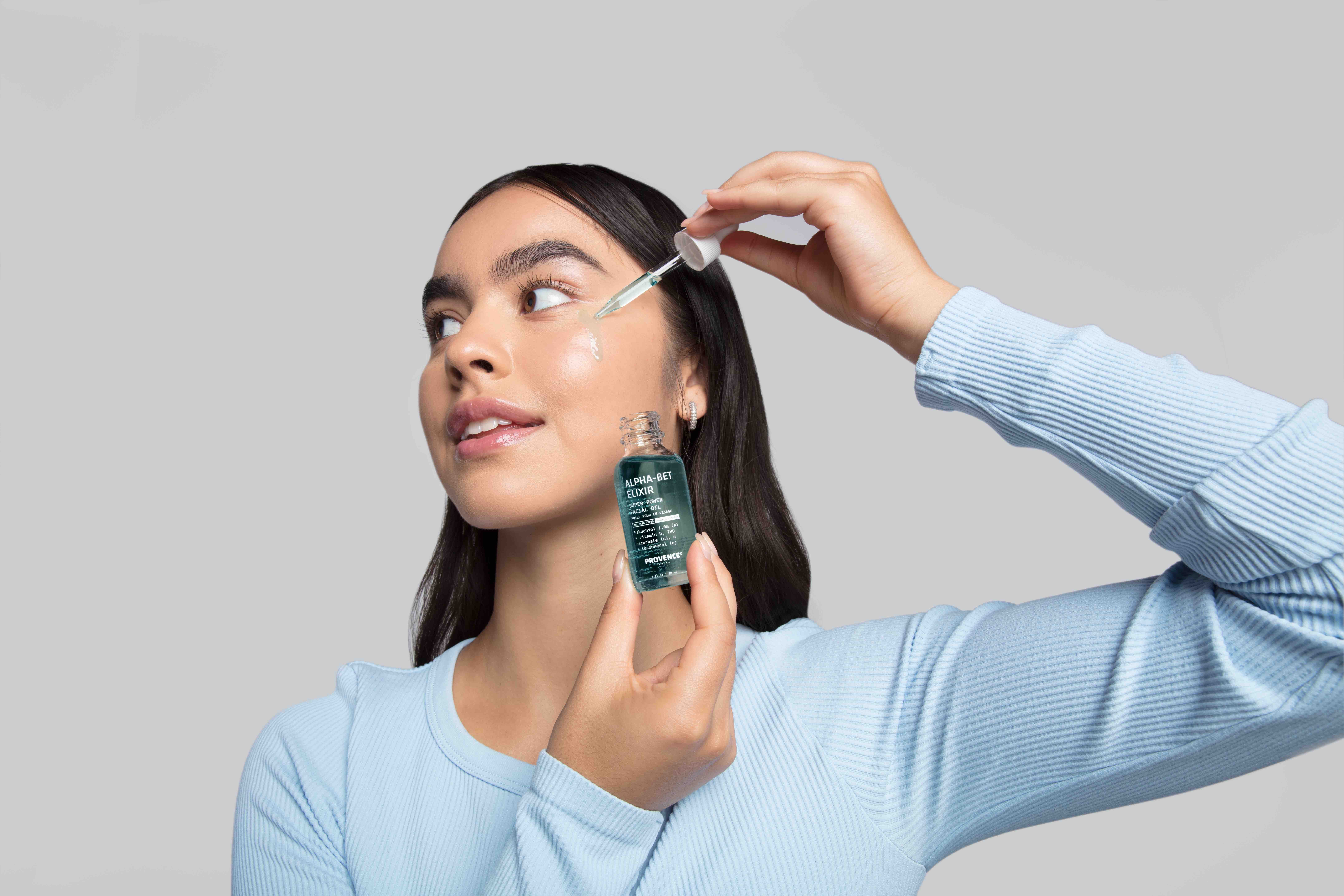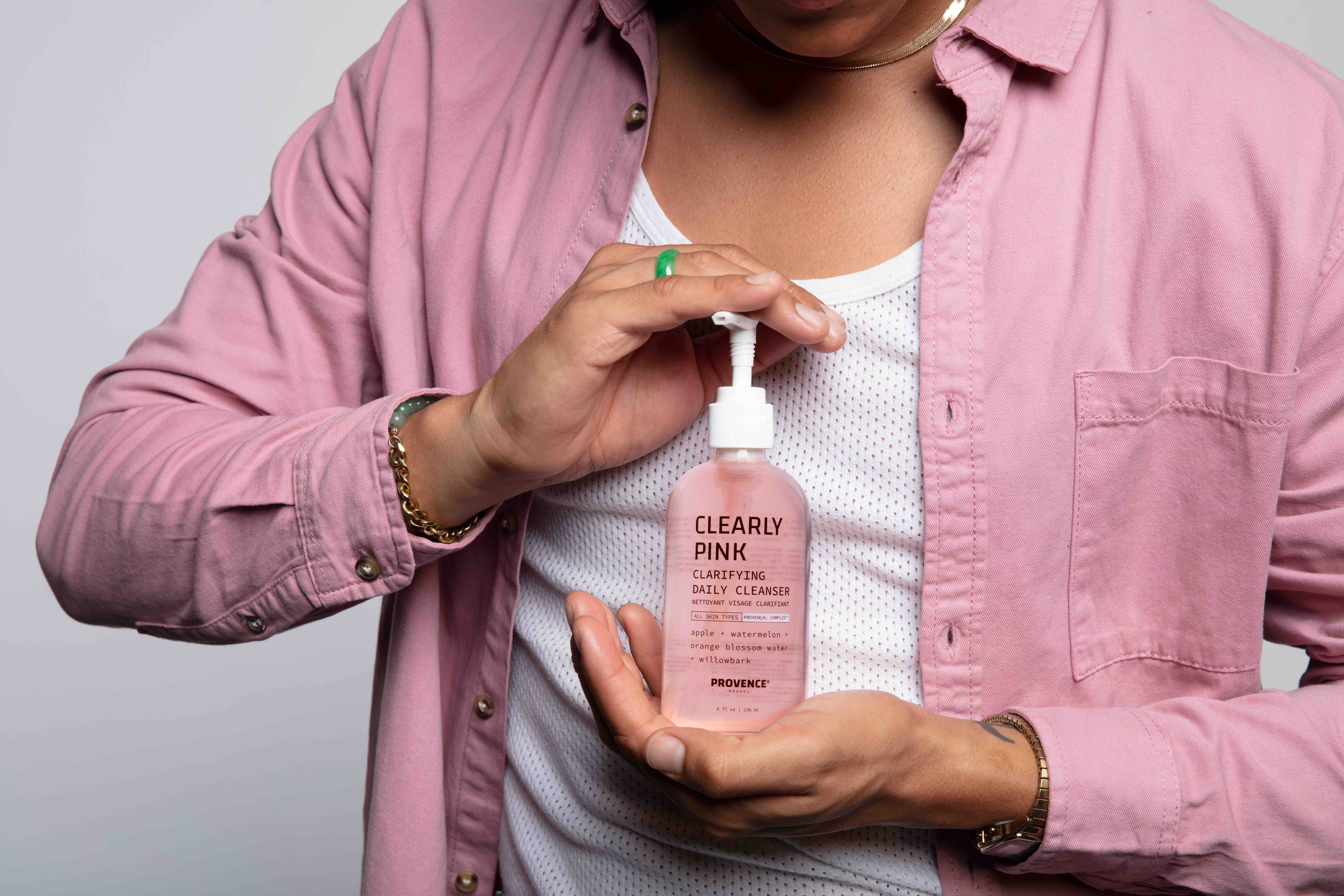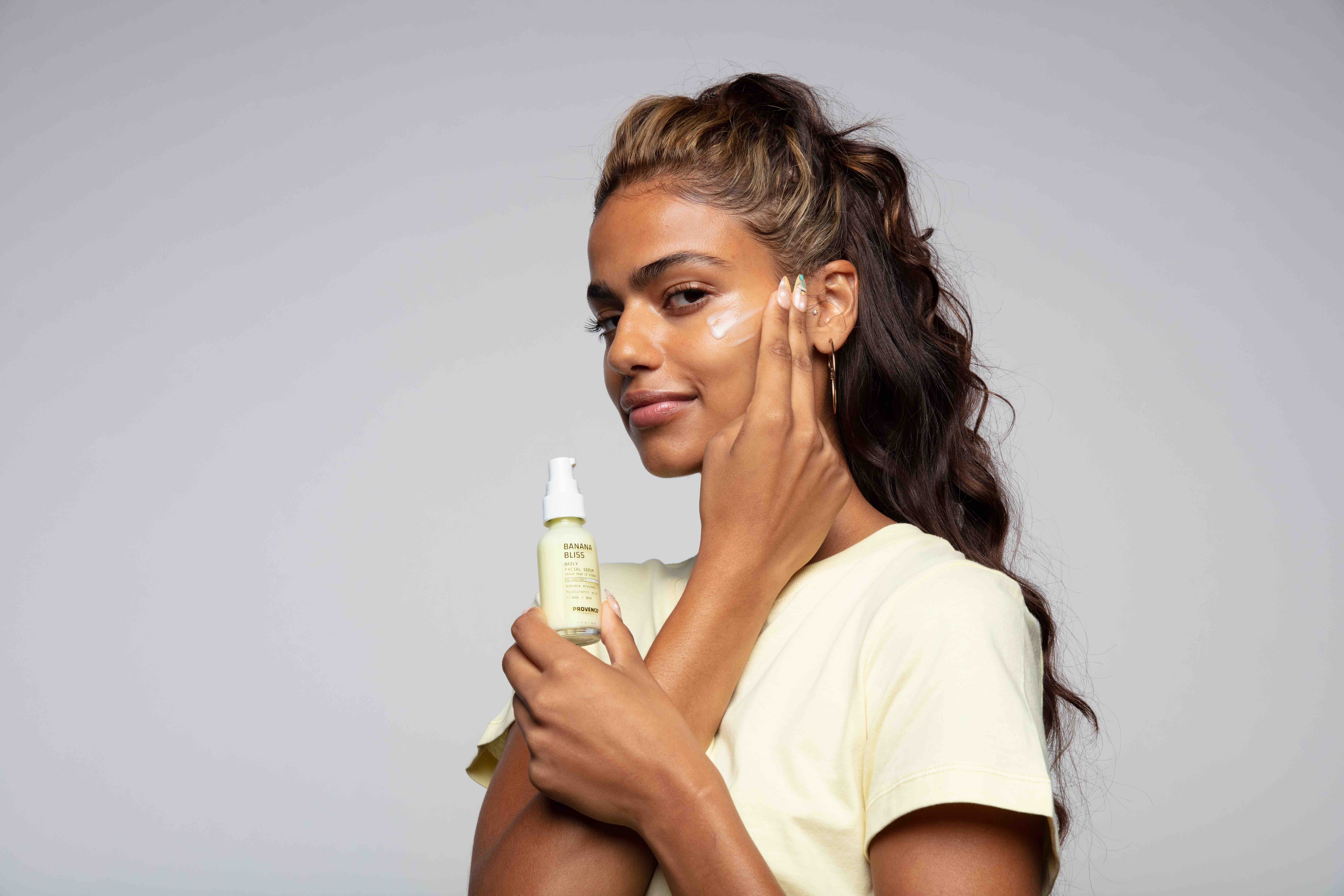
“A Different Path Than Most Brands”: How Provence Beauty Went From T.J. Maxx To Ulta Beauty
French skincare has a reputation for quality, straightforward formulas, but not necessarily for playful products directed at young consumers. Provence Beauty is out to introduce the next generation to it, with a dash of joie de vivre.
Founded by Jeremy Abesera, a Los Angeles native with French and Moroccan heritage, the brand began in off-price retail before being overhauled to suit specialty chains like Ulta Beauty, which is carrying it exclusively for two years. Its refreshed assortment features vibrant products (the goop is orange, blue, purple and other eye-catching colors), cool textures (there are gels, balms, whipped skincare confections and more), and masstige pricing at $25 or less for shoppers who don’t have big discretionary budgets. Citing industry sources, the publication Women’s Wear Daily reported a projection that Provence Beauty could generate over $10 million in 2023 sales.
“For someone who can no longer afford to buy a $60 to $70 serum, our serums are a great one-to-one swap, and we’re promoting that,” says Abesera. “High-end formulas don’t have to be so expensive. There’s technology today that allows you to formulate high-end formulas at lower prices.”
Beauty Independent chatted with him to learn about his read on the market today, Provence Beauty’s journey from off-price to specialty beauty retail, its approach to new products, the resonance of French skincare, advantages of in-house manufacturing, and why Ulta picked up the brand.
How did you get into the beauty business?
My uncle started bringing French clay to the U.S. in the late ‘60s. He had a line called Cattier Paris. He had French clay in masks. He had it in powders. He had it in soaps. That’s how my family started in the business, and my uncle was pretty big at the time. He was selling in Bloomingdale’s and Bergdorf.
I don’t know exactly what happened. You hear different stories from my uncles and my dad, but he ended up selling and got out. My father got back into beauty in the ‘90s, in the soap category. He was doing classic triple-milled French soap. I spent summers working for my father as a kid.
In 2013, I asked my father for his blessing to do my own thing. He said, “Absolutely, go for it.” I was living in LA, and I moved to New York. I started thinking about the concept I wanted to do. It took a few years until I figured out I wanted to be more in skincare than body care.
I only had $6,000 to $7,000 in my pocket. I quickly realized you need a lot more than that to start a brand. After being in New York for a while, I met a few buyers, and I jumpstarted the brand going to the off-price market, the T.J. Maxxes of the world. I went into T.J. Maxx, and I saw that, in the skincare assortment they had there around 2014, there wasn’t a lot of clean or vegan products. Now there are a lot of them, but that’s where I found my niche.
I started offering them clean, vegan skincare under Provence Beauty. I started with a few SKUs, and it slowly grew from there. Year after year, it grew until the point where we started to have a great business. By 2017, it was really taking off. It was clean formulas and good packaging at a great price. It was usually $5.99 to $7.99.
How did Provence Beauty go from T.J. Maxx to Ulta Beauty?
We started growing on Amazon, too, and I was putting as many funds as I could away, living a very simple life. I was waiting for that moment where I felt we had enough capital to do what I wanted to do with classic French skincare ingredients and a simple regimen. Once I had the funds, in 2021, I got into the formulation process with our chemist, and we started looking at SKUs we wanted to create, keeping it simple, clean and vegan with ingredients sourced from the South of France.
After about a year, we had formulations down, and we were really happy with what we created. We came up with 11 SKUs. From there, we started doing branding in-house, and once we felt we were in a good position, we started pitching retailers. We sent samples to Ulta, and they were very impressed by the quality of the products and the price point. One of the reasons we’re able to get the price point is because we manufacture everything ourselves. The price point is between $18.99 and $24.90. The whole goal was to be $25 and under.
Can you build a brand at off-price retailers like T.J. Maxx?
It’s funny, usually it’s not a place to build a brand, but we actually built a following there. Usually, you will see a lot of big brands with overstock there. I took a different path than most brands. Most brands start off higher end and maybe create a sub-brand that goes into that market. For me, it started the opposite way because it’s not as expensive to enter that world as it is to enter Ulta or Sephora.
I 100% believe that it’s the best school you could have. I learned a lot about manufacturing, making and moving a ton of units. I learned about shipping and the processes that go along with dealing with retailers. It really set me up for success with Ulta.
With the T.J. Maxxes of the world, you need to be crafty with your purchasing, and you need to be very quick with your turnaround times. You need to be constantly producing units and shipping on time. For example, you could be shipping 60,000 units in two weeks.
Interest in French beauty seems to be perennial, and there’s definitely a lot of interest in it today. Why do you think that is?
French beauty is classic. It’s simple. What I mean by simple is there’s not 100 steps. It’s a simple regimen, and it’s effective. It’s been working for years, and I think that’s what resonates with people.
What did you tell Ulta that you think convinced the retailer to bring on Provence Beauty?
There was mutual interest from both sides. They were very impressed with the formulations, with the branding, the concept of modernizing French beauty for the next generation and having both of my cultures together. It’s my Los Angeles, American heritage mixed with my French heritage.
When we say by modernizing French skincare for the next generation, we mean that we make it more accessible and clean and not as serious as French skincare can be. It has a stuffy, serious vibe to it, and we wanted to make it more fun.

How did you support the Ulta launch?
We went full chain off the bat. We launched in January on a tower in the front of the store, and we were placed in the skincare section in late February. We pushed social on TikTok and Instagram to get awareness out there. We’ve been making sure that influencers on both platforms are sharing honest reviews of the product.
You can only find us exclusively at Ulta. I was happy to have a two-year exclusive with them. I really wanted to focus on one retailer. I didn’t want to have to get awareness as a new brand in multiple retailers. I felt that would have forced us to spread funds to too many different chains. Ulta is a great partner in supporting our business, and we felt it was a good move to drive as much traffic and awareness to one retailer.
What’s the bestseller?
It’s very early, but currently the bestseller is our Deep Bleu Cloud Night Moisturizer. It’s a great formula. It has a whipped texture, and it’s packed with tons of actives. We have squalane, shea butter at 5%, peptides, hyaluronic acid and blue tansy, a lot of the ingredients you are seeing in the prestige market at high price points. It feels and performs like a much higher price point item.
Who’s the target customer for Provence Beauty?
We believe we are positioned well to be a millennial and gen Z brand. Gen Z wants to support brands that are clean, and what I mean by clean is that we hit all four pillars in Ulta’s Conscious Beauty platform. We have clean formulas, but clean is also a statement of you are when you are buying this.
The way our packaging looks, it describes your sense of style. It looks amazing on your vanity. The customer likes the way the brand looks. She likes the way it makes her room looks. It gives off her personality. The ideal customer is price-conscious, but she knows what she wants. She wants something to be effective and look great.
What’s your read on the skincare market today?
The market is definitely very saturated. There are so many different brands out there, and I think it’s very hard to position yourself well with so many competitors. There are a lot of great brands out there, but, with what’s going on with the economy, a lot of them are really not affordable. How we differentiate from others is giving high-end formulas with high-end ingredients and making them affordable.
What’s the advantage of in-house manufacturing?
We have always manufactured ourselves. The reason for that was to limit MOQs that we had to make. Starting off, when you don’t have the type of funding or backing to be able to go to a contract manufacturer and order whatever MOQs they have, the best way to start was manufacturing on our own.
It’s a lot of work and very challenging at times, but, 10 years later, it positioned the brand to be successful because we were able to launch 11 new SKUs without having deep MOQs before we knew where we were going to end up. We are fully automated now. We are not even hitting close to our peak of what we could manufacture. We have a lot of room left to grow with our current setup.
Have you had any external funding?
It’s been funded by myself after years of putting dollar after dollar away with the ultimate goal of being able to get to this point. I have been speaking to different investors in the beauty space to start building relationships. If I feel like we need to scale more and need financial help to do that, I would be very happy to get a strategic partner, but not just for funds. I see us down the line really growing into different categories and expanding outside the U.S. to European markets.
What changes do you see happening in the beauty industry?
Transparency is the key moving forward. What is clean? What’s natural? What’s not natural? I see the future of the business as being transparent, partnering with companies like ClearForMe. We have clickable ingredients on our website so you can see what’s in our products and what they do. We aren’t hiding anything.
We also teamed up with Bluebird to give you the carbon footprint of each SKU. It’s not just saying you are clean and conscious of the planet, but really showing you.

What’s the biggest challenge you face?
The biggest challenge is competing for brand awareness. It’s very costly and very saturated, but the end consumer is really liking our affordability, textures and ingredient stories. Obviously, French skincare is a big part of it, too.
How do you approach newness?
We just launched four lip oils. You are seeing lip oils trending, and we heard on the market that a lot of lip oils out there are more of a gloss than an actual oil. We felt that a real lip oil was good place for us to enter the market. It’s not like a gloss. It’s an actual oil. It’s not a thick, sticky formula.
We have wine-inspired colors and flavors. The lip oils are called Plum Merlot, Poppin’ Champagne, Pink Rosé and Peach Moscato. We included our Provençal complex, which is in every single one of our SKUs, and we added pomegranate extract for natural lip plumping.
Ever since the lip oils launched, a lot of people have been asking me, “Are you going to jump into makeup?” I’m not sure if that’s the road we are going to go down yet. Right now, I’m really concentrated on skincare, but I felt like this was a happy medium.
As far as coming up with newness, I really want to be very cautious with what we bring out. We don’t want to make SKUs just to make new SKUs. Any new SKU that we create, we want it to have a purpose. We ask, “Why is this being made, and why should it be included in your routine.?”
We are trying to avoid waste. Some brands fall into creating so many SKUs at such a fast pace, and so many of them don’t perform, and they just get wasted. I don’t want to go down that path.
How do you think about direct-to-consumer?
I still have that old-school mentality, where I think that retail is really your backbone. That’s where you can grow your brand in a really healthy way. DTC is a big part of the business. It hasn’t been our main focus. We partnered with Ulta, and we want to make sure we are great partners to them and grow the business with them. Definitely, DTC is a big part of the beauty business, and I don’t see that going away, but people had counted out how strong a retail partner is.
All of our retail sales are done in-house. Working for the brand, we have about 35 people in total. That’s a mix of warehouse, manufacturing, sales, social and design. One of the best hires I did was bringing in the COO, Zion Benarroch. He runs operations. What I learned really quickly is that you have to accept help and not want to do everything on your own and be so controlling. You have to bring in help, and let people who are the master of what they do help you get to your end goals.
In five years, where do you hope Provence Beauty will be?
I hope that the brand in five years will be in all the main beauty destinations around the world.





Leave a Reply
You must be logged in to post a comment.